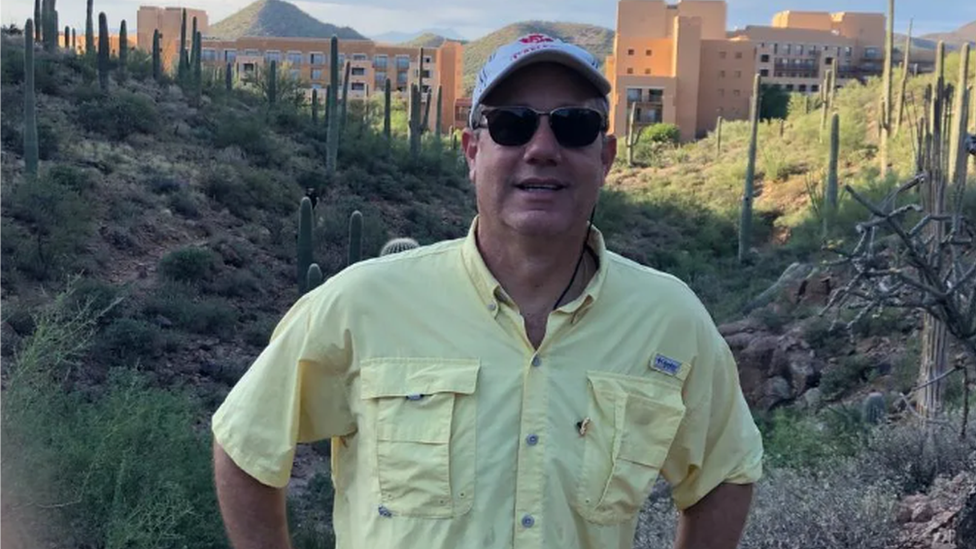Puerto Rico adds 'USA' to driver's licences after misidentification
- Published

It was around midnight at New Orleans International Airport on 9 May, and Humberto Marchand was tired.
He had just flown in from Puerto Rico to Louisiana to help his son move out at the end of the university semester.
But that night in May, Hertz, a company the 55-year-old had rented from many times before, would not let him access his pre-paid car, claiming his Puerto Rico driver's licence meant he was not a US citizen.
Frustrated, Mr Marchand took out his cell phone to record the encounter, which eventually led to a police officer kicking him out of the car company.
"It caught me off guard," he said. "I was aggravated. It's just a basic ignorance about the fact that Puerto Rico is a US territory."
Mr Marchand is among several Puerto Ricans who have reported being denied services in the US despite having a valid US driver's licence from Puerto Rico.
As a result, Puerto Rico announced this month that it would add "USA" to the top of its driver's licences, a move that Transportation Secretary Eileen Velez-Vega said she hoped would prevent "serious setbacks" residents have faced with companies and law enforcement officials when trying to access certain services.
"This initiative has the purpose of minimising the existing confusion and emphasising that Puerto Rico is a territory of the United States," she said in a statement.
The easternmost island in the Greater Antilles, Puerto Rico has been a US territory since 1898. Everyone born in Puerto Rico is an American citizen with a US passport.
But its 3.2 million residents cannot vote in US presidential elections and nor can they elect lawmakers with the right to vote in Congress.
And recent polling suggests, external nearly half of Americans are not even aware that Puerto Ricans are US citizens.
This year alone, several Puerto Ricans have shared stories of being denied alcohol at grocery stores and boarding on flights because of misunderstandings about their identification.
In May, Spirit Airlines would not let a family board a domestic flight from Los Angeles because the parents didn't have a US passport for their toddler, despite not needing one since their child was a citizen.
In June, a military veteran at a Kroger grocery store in Savannah, Georgia was told he could not purchase alcohol with his Puerto-Rico-issued driver's licence.
In Mr Humberto's case, after an outcry on social media, Hertz eventually apologised and offered to cover his expenses.
Ms Vélez Vega, the transportation secretary, said she was appalled by the video Mr Humberto recorded of the incident.
"I was shocked about how much lack of education, lack of knowledge was out there," she told the New York Times, external.
A retired federal law enforcement official, Mr Humberto said the encounter was representative of broader discrimination that many Puerto Ricans have been experiencing for years.
"It brings up a larger issue regarding the possibility of ignorance and also just prejudice," he said.
Ms Vélez Vega told the Times that her department had come up with the driver's licence solution after talks with the Department of Homeland Security, arguing that more education efforts were also necessary to fix the problem.
Mr Humberto said he was frustrated that such a solution was even necessary.
"It's not a silver bullet," he said.
"But it should help for some people who have doubts," he added. "This has to end."